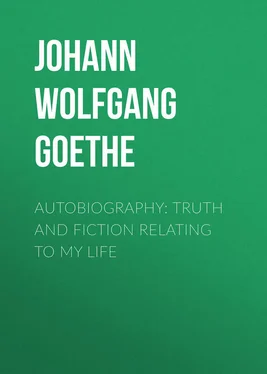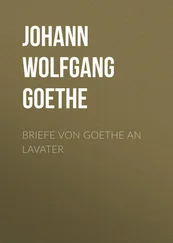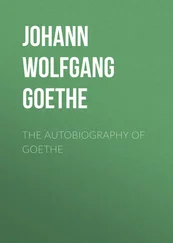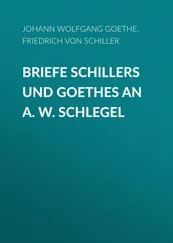Johann von Goethe - Autobiography - Truth and Fiction Relating to My Life
Здесь есть возможность читать онлайн «Johann von Goethe - Autobiography - Truth and Fiction Relating to My Life» — ознакомительный отрывок электронной книги совершенно бесплатно, а после прочтения отрывка купить полную версию. В некоторых случаях можно слушать аудио, скачать через торрент в формате fb2 и присутствует краткое содержание. Жанр: foreign_antique, foreign_prose, на английском языке. Описание произведения, (предисловие) а так же отзывы посетителей доступны на портале библиотеки ЛибКат.
- Название:Autobiography: Truth and Fiction Relating to My Life
- Автор:
- Жанр:
- Год:неизвестен
- ISBN:нет данных
- Рейтинг книги:5 / 5. Голосов: 1
-
Избранное:Добавить в избранное
- Отзывы:
-
Ваша оценка:
- 100
- 1
- 2
- 3
- 4
- 5
Autobiography: Truth and Fiction Relating to My Life: краткое содержание, описание и аннотация
Предлагаем к чтению аннотацию, описание, краткое содержание или предисловие (зависит от того, что написал сам автор книги «Autobiography: Truth and Fiction Relating to My Life»). Если вы не нашли необходимую информацию о книге — напишите в комментариях, мы постараемся отыскать её.
Autobiography: Truth and Fiction Relating to My Life — читать онлайн ознакомительный отрывок
Ниже представлен текст книги, разбитый по страницам. Система сохранения места последней прочитанной страницы, позволяет с удобством читать онлайн бесплатно книгу «Autobiography: Truth and Fiction Relating to My Life», без необходимости каждый раз заново искать на чём Вы остановились. Поставьте закладку, и сможете в любой момент перейти на страницу, на которой закончили чтение.
Интервал:
Закладка:
The idea of writing Faust seems to have come to Goethe in his earliest manhood. He was brooding over it at the same time with Götz von Berlichingen. Faust justly stands at the head of all Goethe's works. Founded on a well-known popular tale, indebted for its interest and pathos to incidents of universal experience, it deals with the deepest problems which can engage the mind of man.
In 1809 he finished The Elective Affinities.
It was natural at the beginning of a new course of life that Goethe should write an account of his past existence. The study of his collected poems made it apparent to him how necessary it was to furnish a key by which they might be understood. These various causes led to the composition of /Dichtung und Wahrheit/ (Poetry and Truth), an autobiographical history of the poet's life from his birth till his settlement at Weimar. This work is the cause of much embarrassment to the poet's biographers. Where it ought to be the most trustworthy source of information, it is most misleading.
Once more in his old age Goethe came under the sovereignty of a woman. She was Marianne von Willemer, the newly married wife of a Frankfort banker. Goethe made her acquaintance in a journey which he took in the Rhine country. The correspondence between Goethe and Marianne was published in 1877. It extends almost to the day of his death, and includes letters from Eckermann giving an account of his last moments.
The last twelve years of Goethe's life, when he had passed his seventieth birthday, were occupied by his criticisms on the literature of foreign countries, by the Wanderjahre, and the second part of Faust. He was the literary dictator of Germany and of Europe. The Wanderjahre contains some of Goethe's most beautiful conceptions, The Flight Into Egypt, The Description of the Pedagogic Province, The Parable of the Three Reverences.
The second part of Faust has been a battlefield of controversy since its publication, and demands fuller attention. Its fate may be compared with that of the latest works of Beethoven. For a long time it was regarded as impossible to understand, and as not worth understanding, the production of a great artist whose faculties had been impaired by age. By degrees it has, by careful labor, become intelligible to us, and the conviction is growing that it is the deepest and most important work of the author's life.
He had much to darken his latter days. His wife had died in 1816. He felt her loss bitterly. The Duchess Amalia had died eight years before. He had now to undergo bitterer experiences when he was less able to bear them. Frau von Stein, with whom he had renewed his friendship, if not his love, died in January, 1827; and in June, 1828, he lost the companion of his youth, the Grand Duke Karl August, who died suddenly, away from Weimar.
We must pass to the closing scenes. On Thursday, March 15, 1832, he spent his last cheerful and happy day. He awoke the next morning with a chill. From this he gradually recovered, and on Monday was so much better that he designed to begin his regular work on the next day. But in the middle of the night he woke with a deathly coldness, which extended from his hands over his body, and which took many hours to subdue. It then appeared that the lungs were attacked, and that there was no hope of his recovery. Goethe did not anticipate death. He sat fully clothed in his arm chair, made attempts to reach his study, spoke confidently of his recovery, and of the walks he would take in the fine April days. His daughter-in-law Ottilie tended him faithfully. On the morning of the 22d his strength gradually left him. He sat slumbering in his arm chair, holding Ottilie's hand. Her name was constantly on his lips. His mind occasionally wandered, at one time to his beloved Schiller, at another to a fair female head with black curls, some passion of his youth. His last words were an order to his servant to open the second shutter to let in more light. After this he traced with his forefinger letters in the air. At half-past eleven in the day he drew himself, without any sign of pain, into the left corner of his arm chair, and went so peacefully to sleep that it was long before the watchers knew that his spirit was really gone. He is buried in the grand-ducal vault, where the bones of Schiller are also laid.
AUTOBIOGRAPHY TRUTH AND FICTION RELATING TO MY LIFE
AUTHOR'S PREFACE
As a preface to the present work, which, perhaps, more than another, requires one, I adduce the letter of a friend, by which so serious an undertaking was occasioned.
"We have now, my dear friend, collected the twelve parts of your poetical works, and, on reading them through, find much that is known, much that is unknown; while much that had been forgotten is revived by this collection. These twelve volumes standing before us in uniform appearance, we cannot refrain from regarding as a whole; and one would like to sketch therefrom some image of the author and his talents. But it cannot be denied, considering the vigor with which he began his literary career, and the length of time which has since elapsed, that a dozen small volumes must appear incommensurate. Nor can one forget, that, with respect to the detached pieces, they have mostly been called forth by special occasions, and reflect particular external objects, as well as distinct grades of inward culture; while it is equally clear, that temporary moral and æsthetic maxims and convictions prevail in them. As a whole, however, these productions remain without connection; nay, it is often difficult to believe that they emanate from one and the same writer.
"Your friends, in the mean time, have not relinquished the inquiry, and try, as they become more closely acquainted with your mode of life and thought, to guess many a riddle, to solve many a problem; indeed, with the assistance of an old liking, and a connection of many years' standing, they find a charm even in the difficulties which present themselves. Yet a little assistance here and there would not be unacceptable, and you cannot well refuse this to our friendly entreaties.
"The first thing, then, we require, is that your poetical works, arranged in the late edition according to some internal relations, may be presented by you in chronological order, and that the states of life and feeling which afforded the examples that influenced you, and the theoretical principles by which you were governed, may be imparted in some kind of connection. Bestow this labor for the gratification of a limited circle, and perhaps it may give rise to something that will be entertaining and useful to an extensive one. The author, to the most advanced period of his life, should not relinquish the advantage of communicating, even at a distance, with those whom affection binds to him; and if it is not granted to every one to step forth anew, at a certain age, with surprising and powerful productions, yet just at that period of life, when knowledge is most perfect, and consciousness most distinct, it must be a very agreeable and re-animating task to treat former creations as new matter, and work them up into a kind of Last Part, which may serve once more for the edification of those who have been previously edified with and by the artist."
This desire, so kindly expressed, immediately awakened within me an inclination to comply with it: for if, in the early years of life, our passions lead us to follow our own course, and, in order not to swerve from it, we impatiently repel the demands of others; so, in our later days, it becomes highly advantageous to us, should any sympathy excite and determine us, cordially, to new activity. I therefore instantly undertook the preparatory labor of separating the poems, both great and small, of my twelve volumes, and of arranging them according to years. I strove to recall the times and circumstances under which each had been produced. But the task soon grew more difficult, as full explanatory notes and illustrations were necessary to fill up the chasms between those which had already been given to the world. For, in the first place, all on which I had originally exercised myself were wanting, many that had been begun and not finished were also wanting, and of many that were finished even the external form had completely disappeared, having since been entirely reworked and cast into a different shape. Besides, I had also to call to mind how I had labored in the sciences and other arts, and what, in such apparently foreign departments, both individually and in conjunction with friends, I had practised in silence, or had laid before the public.
Читать дальшеИнтервал:
Закладка:
Похожие книги на «Autobiography: Truth and Fiction Relating to My Life»
Представляем Вашему вниманию похожие книги на «Autobiography: Truth and Fiction Relating to My Life» списком для выбора. Мы отобрали схожую по названию и смыслу литературу в надежде предоставить читателям больше вариантов отыскать новые, интересные, ещё непрочитанные произведения.
Обсуждение, отзывы о книге «Autobiography: Truth and Fiction Relating to My Life» и просто собственные мнения читателей. Оставьте ваши комментарии, напишите, что Вы думаете о произведении, его смысле или главных героях. Укажите что конкретно понравилось, а что нет, и почему Вы так считаете.












